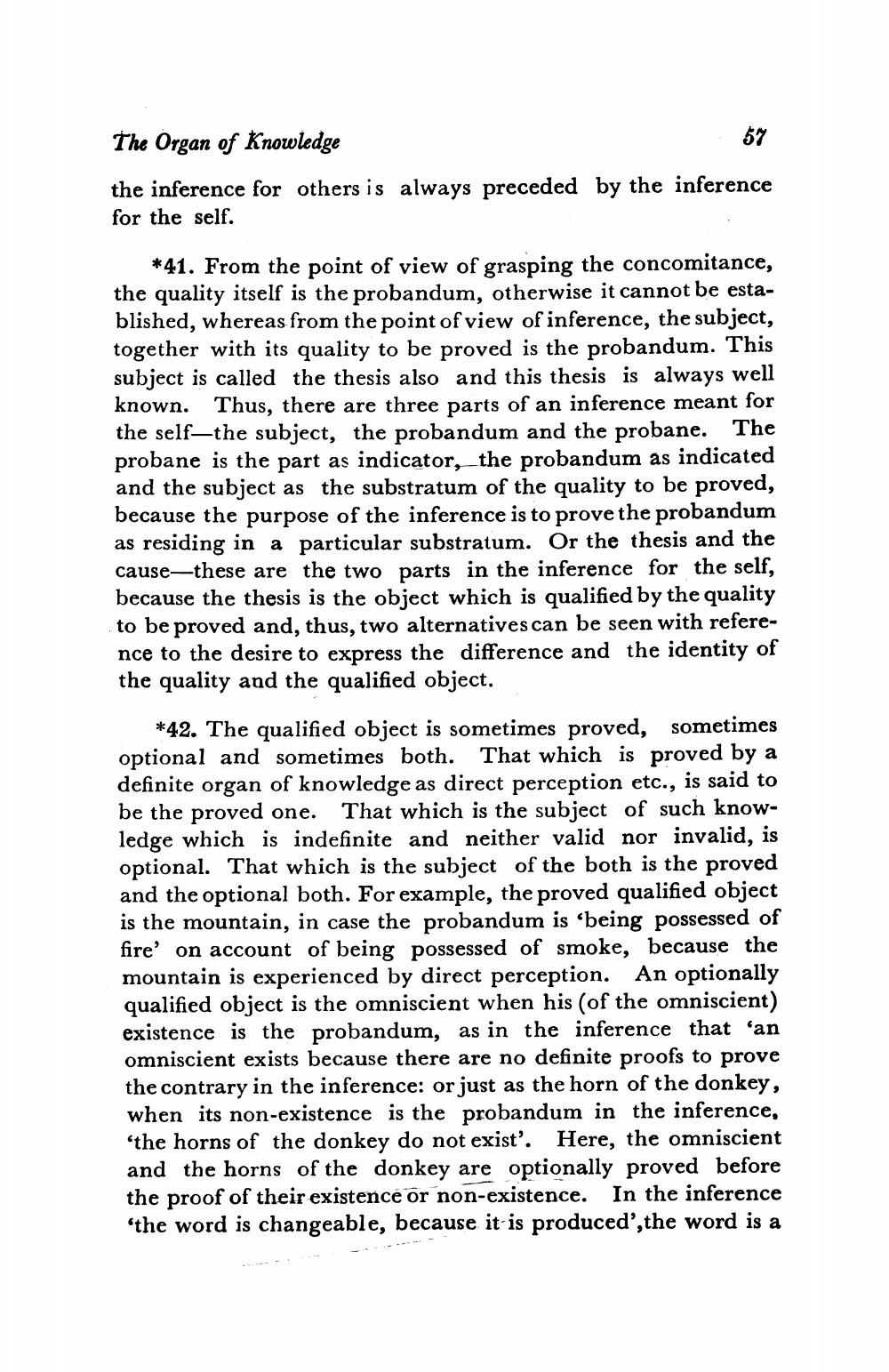________________
57
The Organ of Knowledge
the inference for others is always preceded by the inference for the self.
*41. From the point of view of grasping the concomitance, the quality itself is the probandum, otherwise it cannot be established, whereas from the point of view of inference, the subject, together with its quality to be proved is the probandum. This subject is called the thesis also and this thesis is always well known. Thus, there are three parts of an inference meant for the self-the subject, the probandum and the probane. The probane is the part as indicator, the probandum as indicated and the subject as the substratum of the quality to be proved, because the purpose of the inference is to prove the probandum as residing in a particular substratum. Or the thesis and the cause these are the two parts in the inference for the self, because the thesis is the object which is qualified by the quality to be proved and, thus, two alternatives can be seen with reference to the desire to express the difference and the identity of the quality and the qualified object.
*42. The qualified object is sometimes proved, sometimes optional and sometimes both. That which is proved by a definite organ of knowledge as direct perception etc., is said to be the proved one. That which is the subject of such knowledge which is indefinite and neither valid nor invalid, is optional. That which is the subject of the both is the proved and the optional both. For example, the proved qualified object is the mountain, in case the probandum is 'being possessed of fire' on account of being possessed of smoke, because the mountain is experienced by direct perception. An optionally qualified object is the omniscient when his (of the omniscient) existence is the probandum, as in the inference that 'an omniscient exists because there are no definite proofs to prove the contrary in the inference: or just as the horn of the donkey, when its non-existence is the probandum in the inference, "the horns of the donkey do not exist'. Here, the omniscient and the horns of the donkey are optionally proved before the proof of their existence or non-existence. In the inference 'the word is changeable, because it is produced', the word is a




